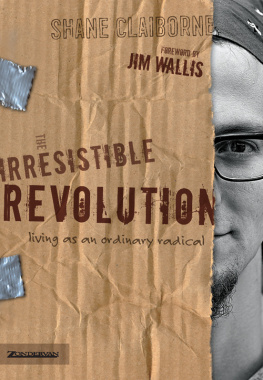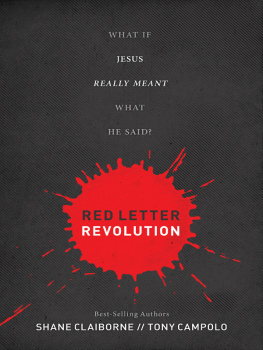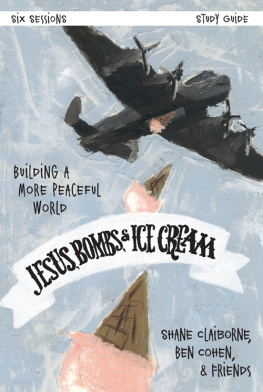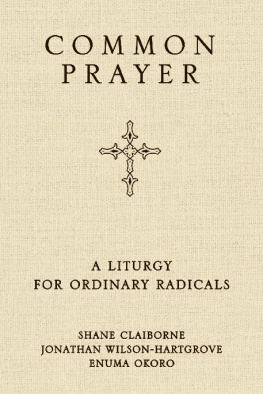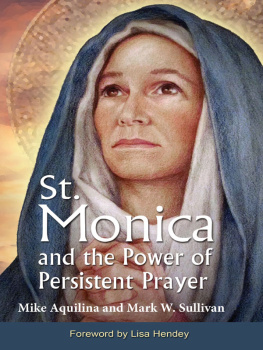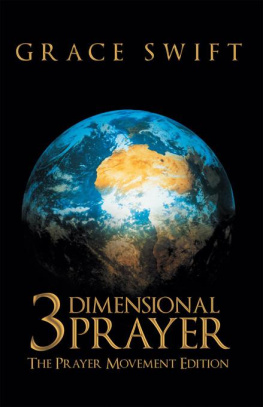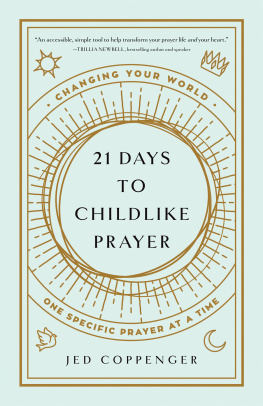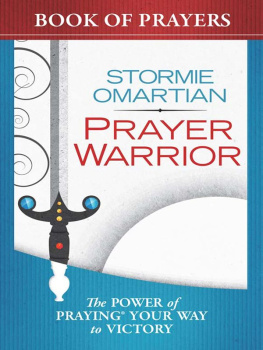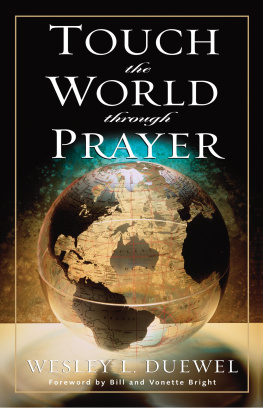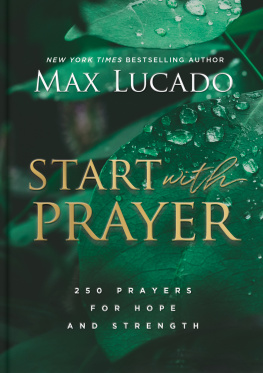1

An Invitation to Beloved Community
Evidently Jesus didnt have a set curriculum for the 101 course he taught the first disciples. Jesus never said, Sign up for my course on prayer and Ill teach you how to talk to God. Instead, Jesus announced a new kingdom with words and signs. Despite his lack of a military or political power, Jesus insisted that his ministry was about a new social order that was good news to the poor and downtrodden. To anyone who would listen, Jesus said, Follow me. Those who did found themselves caught up in an adventure.
Not far into the journey, though, those first disciples realized their need for prayer. Jesus didnt have to tell them. They saw Jesus praying, and they knew they needed some of what he had. One day Jesus was praying in a certain place. When he finished, one of his disciples said to him, Lord, teach us to pray (Luke 11:1).
We feel a little bit like those first disciples. By Gods grace, we stumbled into the adventure of Gods kingdom and gave our lives to Jesus. We were eager to learn the Scriptures and even more enthusiastic about living them out with our whole lives. Not long into this journey, though, we realized that faithfulness requires something we just dont have on our own. The people who did seem to have it were our elders and mentors who knew how to pray. The disciples desire was ours, and their question drove us to pay attention to Jesus response. We started saying the Lords Prayer every day.
The first word of the Lords Prayer is Our . Thats important. The prayer Jesus taught us is a prayer of community and reconciliation, belonging to a new kind of people who have left the land of me. This new humanity is an exodus people who have entered a promised land of we, to whom I and mine and my are things of the past. Here our God teaches us the interconnectedness of grace and liberation in a new social order. Here we are judged inasmuch as we judge, and forgiven as we forgive.
The disciples ask Jesus to teach them to pray, and he begins with Our Father. The Son is calling out to the Father, and the Spirit is interceding for usa brilliant image of the divine community that declared, Let us make human beings in our image (Genesis 1:26). And so we too are made in the image of community. Its our deepest thirst. We are created to love and to be loved. The biblical story begins and ends with community.
When humanity is created, it is not good for one human to be alone, but it is good for humans to help each other. It was community that Jesus taught and lived with his disciples, never sending them out alone. His longest prayer (John 17) is that we would be one as the Father and Son are one. And his promise to us is that the Spirit will be among us, whenever two or three of us gather together. When the Spirit fell upon the early church at Pentecost, there was a divine harmony of foreign tongues and a reconciled community that shared all their possessions in common. The biblical narrative ends with the coming of the New Jerusalem, the City of God, a new heaven and a new earth where all of creation is reconciled, and the lion and the lamb lie down together. Our God is a communal God.
And yet so much in the world tries to rob us of this divine gift, seducing us to settle for independence over interdependencesecurity over sacrificeto the point that community looks idealistic and spectacular. We express our deep hunger for belonging through such forms of community as nationalism, biological family, marriage or small group Bible study. And there is some good in all of these. Like appetizers, they give us little glimpses of community. But we often dont make it to the feast. We stop short of the great community that God has invited us into.
ST. PATRICKS BREASTPLATE
I arise today
Through a mighty strength, the invocation of the Trinity,
Through the belief in the threeness, Through confession of the oneness
Of the Creator of Creation.
This book is an invitation to join the feast already taking place at the table of our Lordby becoming the answer to the prayers Scripture teaches us to pray. Jesus established a community in his resurrected body. This is my body, broken for you is a physical reminder that we have been baptized into Christs body. As living members of that body, we speak Christs words. Praying the Lords Prayer as members of the church is inviting God to make us what we already arethe beloved community of a new humanity.
Our Father in Heaven
Jesus prayer does not begin with us or our needsnot even our confessions or our big dreams for the kingdom (though all of these are important and will follow). The prayer begins with a transcendent God beyond the boundaries of this world, whose name is so hallowed that it is not even mentioned. Instead of a name for
For the young disciples, father was a role loaded with meaningnot just a person but a social construct. Fathers were the authorities, the providers and the sustainers of life in a male-dominated culture. But the words Jesus dares to teach us also retain an element of intimacy, love and admiration, especially when Jesus uses the familiar Abba . We cannot keep God at a safe distance as King or Lord. The One whose name cannot be spoken is drawing close to us. Jesus dares to call the transcendent one Papa. What is more, Jesus teaches us to do the same.
Theres a beautiful place in the Gospels where Jesus lets the disciples in on a family secret:
Truly I tell you, Jesus replied, no one who has left home or brothers or sisters or mother or father or children or fields for me and the gospel will fail to receive a hundred times as much in this present age: homes, brothers, sisters, mothers, children and fieldsalong with persecutionsand in the age to come eternal life. But many who are first will be last, and the last first. (Mark 10:29-31)
Jesus assures us that as we leave our possessions and family in allegiance to Gods kingdom, we will enter a new household of abundance. But when you look closely, there is a difference between the two nearly identical lists. First, there is an additional bonus in the second listpersecutions! Persecutions will come to us when we choose an economic order different from the pattern of the world.
But there is also an omission from the second listfathers.As we are reborn, we leave our biological families. Now we have sisters and brothers and mothers all over the world. And yet Marks omission of fathers is very intentional, consistent with Christs teaching: do not call anyone on earth father, for you have one Father, and he is in heaven (Matthew 23:9). In an age when fathers were seen as the lifeline of the family, the seemingly indispensable authority and providential center-piece, Jesus suggests that we have one Father. Only God is worthy to be seen as Father, the Provider and Authority (and, of course, King).
Heres the incredible clincher in these verses: the multiplication is not just in the age to comecrowns, streets of gold and mansions in heaven. The multiplication of resources begins in this present age. Jesus had homes everywhere he went. He taught the disciples this reality as he commanded them not to take anything for their journeyno bag, no extra food, no clothes, no money, no shoes. By ordering them not to take their stuff, Jesus was implying that they could have taken itthat some of them had access to those things. The disciples were not sent out in the simple poverty of an ascetic life but with a new vision of interdependence, trusting that God would provide for them. One of the early Christians wrote, We have no house, but we have homes. As the disciples entered a town, others would open their homes. And if not, they were to shake the dust off their feet and move on. This made clear that the church was not only to practice hospitality, but to be dependent on hospitality also. The line between us and them was dissolved.


